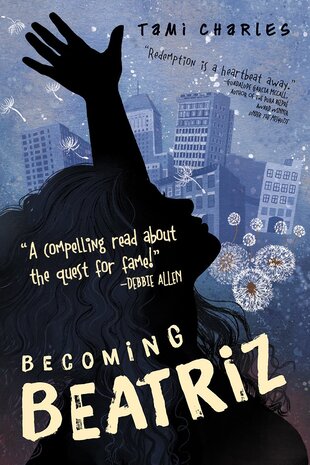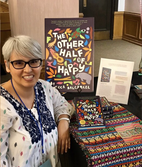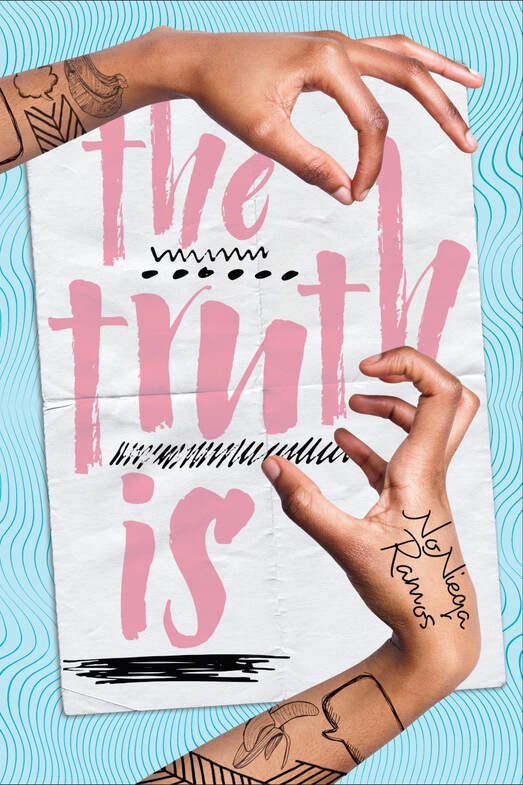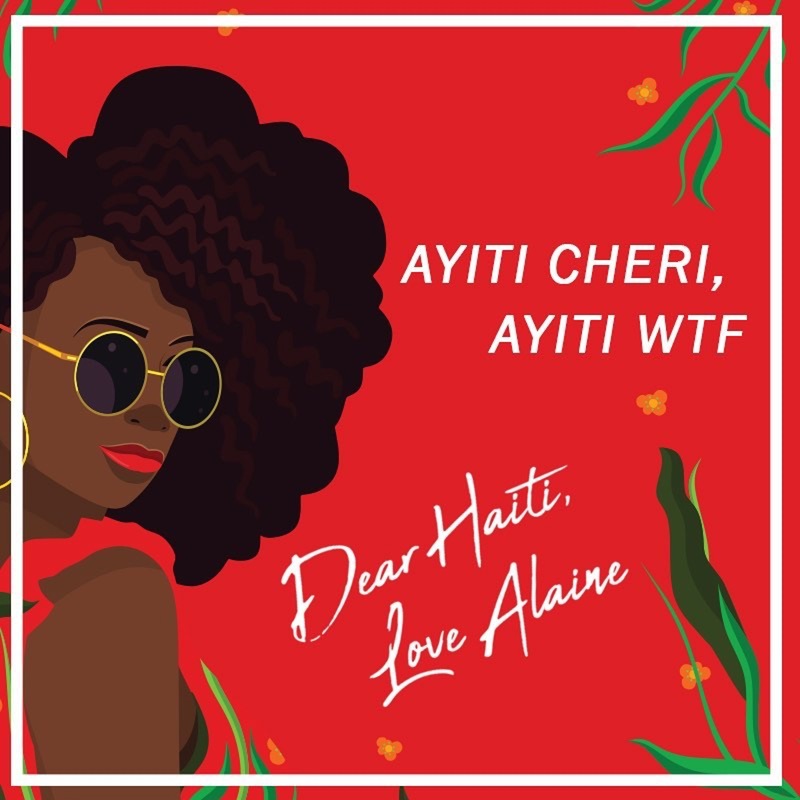|
At least once a year, I come to Buenos Aires to spend time with family—usually in October, to celebrate my grandmother’s birthday (this year she turns 90—there will be dancing until seven in the morning!). It is a magical city full of secret hideaways—I love that you can step through a door and be transported into the Buenos Aires of the past. I like to roam the streets and linger over long dinners with the women in my family (my grandmother calls us the matriarcado). We will usually cook together at home, making empanadas, ñoquis, or milanesas together, but some days, we will go out for a very special treat… Shall we go?
0 Comments
With her street smarts and dance floor heart, Afro-Latina Beatriz will have you rooting for her from page one! When we meet Beatriz, she’s simultaneously looking at a “wishmaker flower” and dodging bullets. That’s pretty much her life. Hope and violence entwined. Beatriz is anchored by love for family, inspired by dancers on TV’s Fame, and stirred by music, but she’s also working out how to keep the cash flowing in the gang she joined at age twelve and how to follow in the footsteps of her big brother, who led the gang with distinction. Her inner battle heats up when a clean-cut, book-smart kid flashes her a smile. ‘Hood-savy, she is; school-loving, she’s not. And yet these two young people have some things in common. Both have lived through adversity and violence. Both have a chance to make something of themselves. Both love to bust a move to the music of the day, which is the 1980’s. In a world where her brother has been shot and her mother is slipping into a grief-inspired stupor, Beatriz finds the idea of romance both alluring and dangerous. How can she reveal her gang life to Mr. Straight-up Good Guy? How can she get involved with a guy who may have ties to the enemy? When they study together, Beatriz can be herself, but her ‘hood is part of herself, too. The fact is, she’s living in two worlds that must eventually collide. With a dance mentor and contest that could put her in touch with her TV role model, Beatriz seems poised to break out of her old life, but her gang says, “Blood in, blood out.” Besides that, threats arrive in cryptic messages. Unfortunately, the past never stays past. It breaks into the present and threatens everything Beatriz is becoming. To become her best self, she’ll have to risk losing the only life she’s ever known. With vivid scenes and page-turner tension, Tami Charles recreates the New Jersey of the 1980’s. She depicts the drug world without flinching, but also humanizes the people caught in its grip. The challenges of immigration, poverty, and gang violence are faced bravely by the characters here, and we find ourselves unable to judge anyone in a simplistic way. This is the strength of fiction, and Charles’s talent of portraying psychological depth leads the reader away from preconceived notions and toward an appreciation of the human struggle. Though readers of Like Vanessa will recognize feisty Beatriz, this book stands alone. It stands, also, as a testament to the dignity and resilience so alive in this character. Treat yourself to this story of hard-won insights and embraced potential. The ending will make you want to dance! By Rebecca Balcárcel
Today, it’s my pleasure to be in conversation with NoNieqa Ramos about her sophomore novel, The Truth Is. The author of The Disturbed Girl’s Dictionary is back with an intense novel that explores identity, grief, prejudice, and so much more.
The Truth Is by NoNieqa Ramos stars Verdad, a fifteen-year-old girl with a lot on her plate. She lost her best friend in a very traumatic way and isn’t sure how to process it. She has a mother that loves her, but her love doesn’t come easy. Her father spends far more time with his step-daughter than he does with her. On top of it all, a new boy in school has caught her attention. A very cute trans boy. An incident with a classmate and her relationship with Danny are catalysts for change in Verdad’s life. She begins to question everything she knows about herself and the world. She questions her sexuality, how she views gender, her Boricua identity, and all the beliefs that have been ingrained in her. The truth is, Verdad has a lot to figure out. Thank you for speaking with me, NoNieqa. Without further ado, let’s get started! There are many times in which Verdad puts her foot in her mouth, realizing she has a lot to learn about others. What do you want readers her age to take from these scenes? We are living in a dystopia. Colonizers robbed indigenous people of this nation and now the forces of white supremacy cage them on the border. The school-to-prison pipeline is modern society’s underground plantation. Migrants are making our clothes, growing and packaging our food, but can’t afford clothes for their children or to put food on their own tables. White supremacy is real, alive, healthy and has become socially acceptable. Racism, colorism, sexism, homophobia--the cockroaches that have been breeding under the wall--are now exposed to the light. I start out my novel with a shooting by a white supremacist to establish this as fact and reality from page 1. So why not just write a book about Verdad dealing with white supremacy? I do. Verdad’s grief over her loss of culture and language are a direct result of assimilation, colonization, and white supremacy. So are Verdad’s biases--and her mom’s. It’s one thing to be a part of Las Musas, it reaches next level, however, when you finally get to meet a fellow Musa. In my case, I was lucky enough to meet the wonderfully talented sister duo, Maika & Maritza Moulite at BEA/Book Con this past June. Brilliant, funny, gorgeous, I just knew that their debut YA, Dear Haiti, Love Alaine, was going to be something special! About the book: When a school presentation goes very wrong, Alaine Beauparlant finds herself suspended, shipped off to Haiti and writing the report of a lifetime… What would a seventeen-year-old Haitian American from Miami with way too little life experience, have to say about anything? Actually, a lot. Thanks to “the incident”, Alaine spends the next two months in Haiti doing a “spring volunteer immersion project.” It’s definitely no vacation. Alaine toils away under the ever-watchful eyes of Tati Estelle and her mother, who is in hiding from her own, much more public incident. All things considered, there are some pretty nice perks for Alaine…like flirting with Tati’s distractingly cute intern, getting actual face time with her mom and experiencing Haiti for the first time. She even explores her family’s history—which happens to be loaded with betrayals, superstitions and possibly even a family curse. You know, typical drama. But it’s nothing Alaine can’t handle. And now, on to the questions! What inspired you to write this book? Growing up, our parents were typical strict Haitian parents. All we knew were the three L’s: lekol, legiz, lakay (school, church, home). But they took it one step further and didn’t let us watch television during the weekdays either. The only way that we knew to entertain ourselves was by going to the library every weekend and checking out a ton of books. We read so many amazing stories but none of them had characters who looked like us or had some of our shared experiences. So one day we thought: what if we wrote a book ourselves? And that’s how Dear Haiti, Love Alaine came to be! |
Las Musas SpeakWelcome to our blog! Archives
July 2024
Categories
All
|








 RSS Feed
RSS Feed